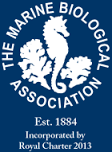General information
This first Ocean Literacy MOOC aims at sensitise and enable teachers and students to incorporate ocean literacy into educational programmes.
Education in its broader understanding (in both formal and informal settings) serves as a high potential channel to reach young citizens. As a lack of sufficient ‘Ocean Literacy’ has been identified in many countries, this clearly presents a barrier for citizens to engage in ocean responsible behaviour or consider ocean-related careers.
To overcome this, it is recommended to develop education to provide the capacity to understand environmental issues, to participate in decision-making processes and to bring about changes in behaviour.
Ocean Literacy can be seen as a way of incorporating scientific literacy in practice in education, whereby scientific literacy not only refers to a person's knowledge of science but also to his or her ability to use this knowledge in making socially responsible decisions.
You'll be able to take into your classroom the Ocean Literacy principles and concepts with a real planning, activities and lesson plans developed with our community.
You'll be able to suggest to your students engagement and exploratory (self-discovery) learning, as well as develop enquiry-based activities with a interdisciplinary context.
You'll be part of an international group where you can have feedback and communication between science centres, educators, reasearchers and stakeholders belonging to the private sector within blue growth and the blue economy.
At the end of this course you'll be able to take into your classroom the Ocean Literacy principles and concepts with different pedagogical approaches: interdisciplinary, integrated by nature, enquiry-based and hands-on.
You'll become familiar with Ocean Literacy Principles and you'll be able to suggest to your students engagement and exploratory (self-discovery) learning, as well as to develop an enquiry-based cross curricular program that connects science closely with the arts, citizenship and ethics.
You'll be familiar with contemporary and emerging issues such as “real-world experiences”, contact with scientists, experimental activities or fieldwork, and these will be viewed as productive pedagogical approaches to teaching and learning.
More specifically, you'll be able to:
- Improve the underdstanding of the importance of the ocean to the humankind;
- Enhancing communication about the ocean in a meaningful way;
- Developing ability to make informed and responsible decisions regarding the ocean and its resources.
Content
The highlighted icons, represent the fields of education (in compliance with ISCED Classification) engaged during this course/programme.
Venue
Paris, France
Application
Click here to apply: https://platform.europeanmoocs.eu/course_from_abc_to_abseas_ocean_liter
Qualification
Assessment:
A participation certificate will be issued to all those that complete at least 70% of the course activities.
This first Ocean Literacy MOOC aims at sensitise and enable teachers and students to incorporate ocean literacy into educational programmes.
Education in its broader understanding (in both formal and informal settings) serves as a high potential channel to reach young citizens. As a lack of sufficient ‘Ocean Literacy’ has been identified in many countries, this clearly presents a barrier for citizens to engage in ocean responsible behaviour or consider ocean-related careers.
To overcome this, it is recommended to develop education to provide the capacity to understand environmental issues, to participate in decision-making processes and to bring about changes in behaviour.
Ocean Literacy can be seen as a way of incorporating scientific literacy in practice in education, whereby scientific literacy not only refers to a person's knowledge of science but also to his or her ability to use this knowledge in making socially responsible decisions.
A participation certificate will be issued to all those that complete at least 70% of the course activities.
You'll be able to take into your classroom the Ocean Literacy principles and concepts with a real planning, activities and lesson plans developed with our community.
You'll be able to suggest to your students engagement and exploratory (self-discovery) learning, as well as develop enquiry-based activities with a interdisciplinary context.
You'll be part of an international group where you can have feedback and communication between science centres, educators, reasearchers and stakeholders belonging to the private sector within blue growth and the blue economy.
At the end of this course you'll be able to take into your classroom the Ocean Literacy principles and concepts with different pedagogical approaches: interdisciplinary, integrated by nature, enquiry-based and hands-on.
You'll become familiar with Ocean Literacy Principles and you'll be able to suggest to your students engagement and exploratory (self-discovery) learning, as well as to develop an enquiry-based cross curricular program that connects science closely with the arts, citizenship and ethics.
You'll be familiar with contemporary and emerging issues such as “real-world experiences”, contact with scientists, experimental activities or fieldwork, and these will be viewed as productive pedagogical approaches to teaching and learning.
More specifically, you'll be able to:
- Improve the underdstanding of the importance of the ocean to the humankind;
- Enhancing communication about the ocean in a meaningful way;
- Developing ability to make informed and responsible decisions regarding the ocean and its resources.

 Marine Biological Association of the UK (MBA)
Marine Biological Association of the UK (MBA)

